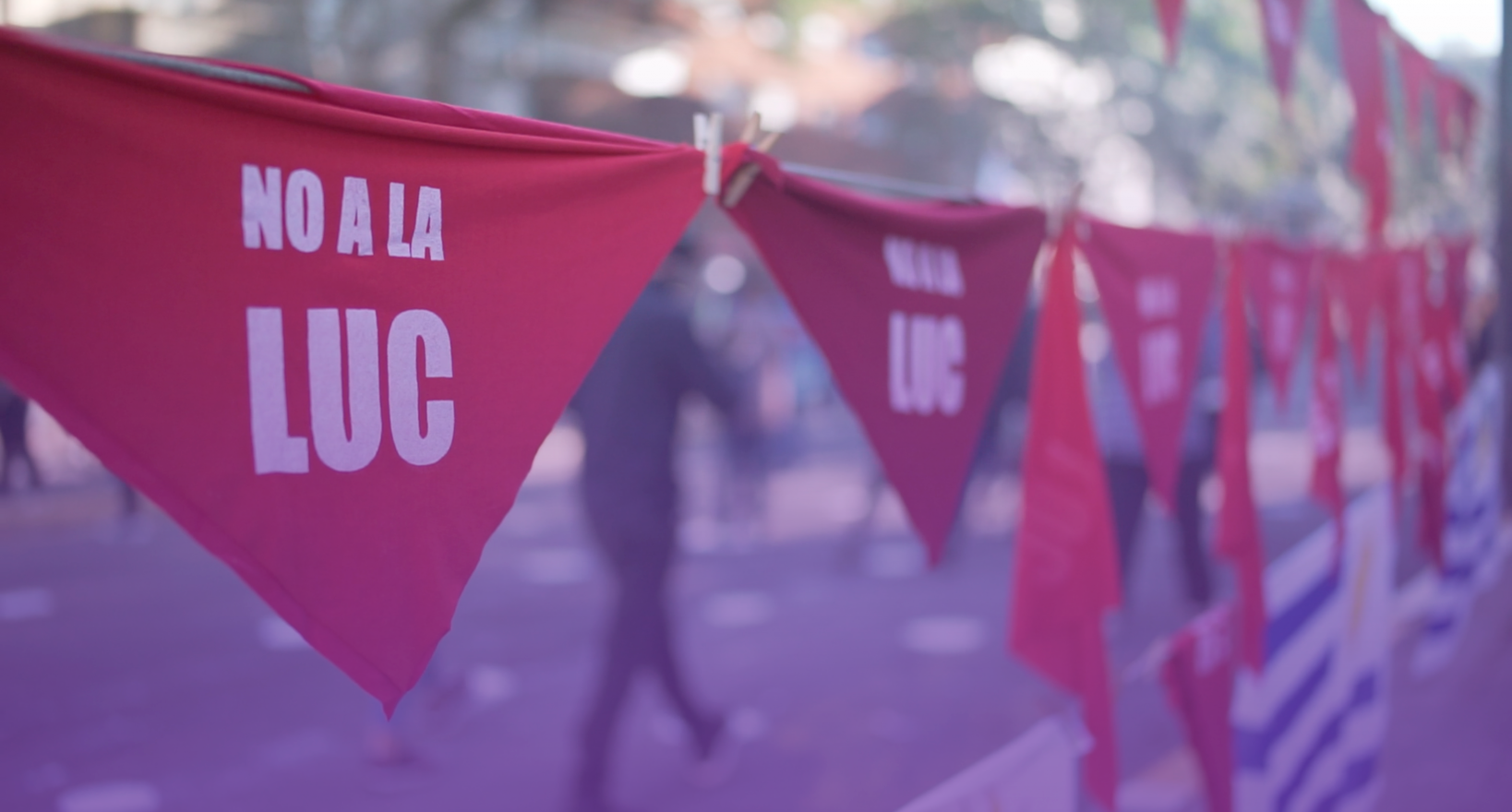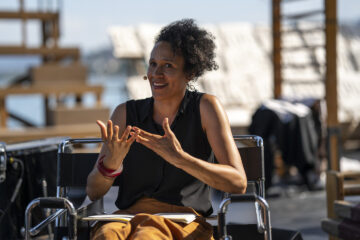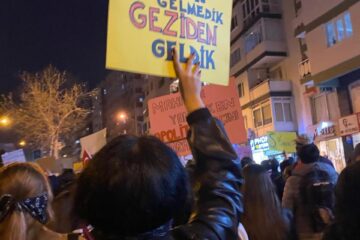On July 8, 2020, in the midst of the COVID-19 pandemic, the Uruguayan Senate approved Law no. 19889, the Urgent Consideration Law (UCL), as is known the project presented by the right-wing coalition government led by Luis Lacalle Pou. The “urgent consideration” character meant that the content of the law had to be addressed within a maximum period of 90 days between the two Houses of Parliament. During this period, strong changes were approved in the areas of security and intelligence, housing, education, access to productive lands, work, economy, public companies, criminalization of the right to strikes and demonstrations.
The original version of the UCL contained 502 articles, modified only superficially in the Senate and Chamber of Deputies. The approved law, which is currently in force, has 476 articles. Social movements, unions, cooperatives, environmentalists and feminists, organized as an Intersocial, analyzed, together with the Broad Front, which articles should be revoked as a priority, since they mean a substantial reform of the role of the State and threaten the exercise of rights.
The original version of the UCL contained 502 articles, modified only superficially in the Senate and Chamber of Deputies. The approved law, currently in force, has 476 articles. Social movements, unions, cooperatives, environmentalists and feminists, organized through Intersocial, analyzed, together with the Broad Front, which articles should be revoked as a priority, since they mean a substantial reform of the role of the State and threaten basic rights.
These sectors decided that 135 articles should be repealed and organized a campaign to collect signatures for a referendum. The feat of collecting almost 800,000 signatures during the pandemic was achieved and, therefore, the referendum will finally take place, when the people from Uruguay will decide whether or not to revoke these 135 articles on Sunday, March 27.
This text points out the main arguments that led to selecting these 135 articles to be repealed. In addition, it reconstructs the process of articulation of social organizations that made it possible to collect signatures and, above all, to open a debate with the population and to demand more time to better understand the content of this law that was approved in a hurry and affects the fundamental rights of the population.
To mark a position
Twelve days after taking office, on March 13, 2020, Lacalle Pou announced that Covid-19 had arrived in Uruguay. With a health emergency declared and no mandatory quarantine, political decisions regarding the pandemic would be marked by neoliberal appeals to “responsible freedom” and individual care. Unemployment and poverty rates rose rapidly, soup kitchens multiplied in squares and neighborhoods and, in the absence of a response from the State, the fabric of social organization was resumed with articulations such as the Intersocial and demands to the government.
The union central PIT-CNT, together with the Federation of University Students of Uruguay (FEUU), the Uruguayan Federation of Mutual Aid Housing Co-operatives (FUCVAM), REDES-Friends of the Earth, the Feminist Intersocial and at least 20 other organizations make up the Intersocial. After several weekly meetings, they managed to reach an agreement on a document with 12 demands and proposals to present to the Lacalle Pou government, among which a provisional emergency allowance to guarantee minimum income for all, food price controls for basic staples and support for small- and medium-sized companies affected by the health and economic crisis. Intersocial was resumed as a space for articulation, which would soon begin to “mark a position” in the debate that Parliament was initiating on the UCL.
The organizations were able to read and review the 502 articles of the UCL a month and a half before the bill passed to the Senate. Despite the difficulties, they requested hearings with the Special Parliamentary Commission, which gave each organization just 15 minutes to present arguments against the different aspects covered by the law. By participating in this mechanism “we demonstrate the low quality of discussions held about the UCL, by giving us only a few minutes despite the density the arguments should have regarding such structural decisions on education, tax rules, money laundering, energy policy, security,” says Valeria Caggiano, spokesperson for the Feminist Intersocial.
For Tamara García, a union activist and feminist, the timing and form of this law “violate the democratic process.” “The problem is the way it is legislated and we, as citizens, have the right to intervene and express our opinions in all spaces, every day,” he said.
Once the UCL was approved, anticipating the consequences it would have, Intersocial decided to convene the referendum as a collective, assuming that “no single force could undertake the task of collecting signatures to make this procedure viable. From the beginning, the premise was to promote this mechanism from a process of strong social articulation”, emphasized Caggiano.
Organizations such as REDES-AT and We are Neighborhood [Somos Barrio], together with the More Equality [Más Igualdad] collective, worked with the Feminist Intersocial to identify the articles to be proposed for repeal, “based on a compilation of what organizations were pointing out as problematic in Parliament and on the public opinion”, explained Natalia Carrau, a member of Friends of the Earth.
As soon as the social movement agreed to repeal 135 articles of the UCL, an odyssey began to collect signatures that would allow for a referendum to be called to repeal the law. Going from house to house, from neighborhood to neighborhood, at street fairs, at the doors of the grassroots committees, at the organizations’ headquarters, they took the petitions for the call to start the referendum. The bases mobilized throughout Uruguay in search of signatures.
“In January 2021 we reached the first 100 thousand signatures and in March we articulated the Youth for the Referendum”, recalled García, highlighting the importance of young people in collecting the signatures. Time passed and signatures increased: “people fell in love with this cause, although the right-wing that won the government seat thought that the left-wing in the country was dead,” says Tamara.
The articulation of the struggle against the UCL made it clear that “nobody is dead here, nobody is sleeping,” García said. “We are determined to build up resistance as long as we have governments that promote rights to large minorities rather than large majorities.” With the UCL, “there are really few families and people who are favored, but they are powerful minorities,” she adds.
The referendum
Between subscriptions, activities in the neighborhoods continued: information stands, exchanges, workshops and presentations. Thousands of people came out to fight for their rights. “Voting is another form of democracy, but freedom of expression, mobilization in the streets, having access to mass media, are also ways of exercising democracy and being a citizen,” said García.
On July 8, 2021, almost 800,000 signatures were delivered to the Superior Electoral Court, exceeding the total number of people needed to call a referendum in the country in 25%. This vote is mandatory and 50.01% of the valid votes are required to repeal a law. In this case, those who choose to support the repeal of the 135 articles must vote YES and those who want the UCL to remain as it was approved must vote NO.
The 135 articles
The UCL “is not popular nor does it guarantee more rights to the population; it does exactly the opposite and is based on what people do not know, on misinformation,” said the unionist. She also stated that “the role that many media outlets and the government have played is to not inform clearly or to make it go unnoticed, so people do not know how to vote.”
As soon as the referendum was approved, the National Commission for YES was formed, composed of more than one hundred social and political organizations.
In this last stretch of the campaign, the Feminist Intersocial continues to bet on mainstreaming a feminist perspective in its criticism of the 135 articles to be repealed, especially those that refer to public security and the right to housing.
Because “when public policies do not consider a gender perspective, when they do not take into account specific impacts, a ‘neutral’ view, far from being innocuous, furthers inequalities instead of combating them,” said Caggiano.
Regarding their criticism of the articles related to security, the Feminist Intersocial warned from the beginning that the increase in penalties for petty drug trafficking would have immediate consequences in the lives of poor women, “who do not participate in small trafficking networks as an option, but because of their own generally precarious living conditions.” In the first year of implementation of the UCL, deprivation of liberty increased exponentially, and women arrested for petty trafficking rose from 30% to 78% of the total female prison population.
“Increasing sentences is presented as a solution, but in fact it deepens the criminalization of poverty and affects women and children more,” said Caggiano. As she travels through vulnerable neighborhoods to campaign for YES, the feminist activist says that neighbors are worried about living in a situation of “permanent insecurity,” seeing how their children “are viewed and treated violently by police forces, because of their supposed ‘suspicious looks,’ based on prejudice for being young, poor and black.” Article 467 allows people to be detained for “acts that appear to be criminal” and its approval is not a minor detail considering that the National Human Rights Institution (INDDHH) has proposed opening investigations due to the increase in complaints of police brutality. The Peace and Justice Service of Uruguay [Servicio de Paz y Justicia del Uruguay] also expressed concern about the issue in a statement.
The repeal proposal includes three articles that criminalize demonstrations and limit the exercise of this right, in addition to making illegal any activity that “interrupts open circulation,” such as blocking streets and gatherings in public spaces, institutions or workplaces. Article 329 puts the fundamental right to free labor on an equal footing with the power of employers to run their business, which ultimately allows employers to intimidate and forcibly evict occupations held by workers.
Regarding housing, the UCL changes lease formats, resulting in a regime with no guarantees. Adding to the criticisms made by the cooperative movement, feminists stated this change in the conditions of access to housing could affect single-parent families headed by women even more, since they constitute the most precarious economic sector, with the worst salary conditions. Caggiano stressed that the same applies to fiscal measures such as the liberalization of payment conditions, something that worsens the precarious employment conditions of workers such as domestic workers.
With regard to education, the UCL modified the General Education Law of Uruguay, eliminating social participation and introducing privatization and commodification logics so that institutions become “service providers” and train people who can function for the market. Among the changes, what was once the “National Public Education System” is now the “National Education System.” The Children, Elementary, High school, Technical and Vocational Education Councils were eliminated and replaced by specific guidelines; as a consequence, there is no teacher participation in decision-making, and another article also eliminates student participation.
In the agricultural sector, the UCL makes changes to the National Colonization Institute (NCI), which grants land to small farmers. It withdraws the agency’s authority over more than 100,000 hectares and changes the requirements for settlement, eliminating the obligation to reside on the land. This allows the land to remain in the hands of people who neither live nor work on it, benefiting the country’s agricultural export sector.
This video by REDES-Friends of the Earth Uruguay explains (in Spanish) the setbacks posed by the UCL regarding changes in access to land in the country.
Tamara García emphasizes the main objective of the struggle: “We want the 135 articles of the UCL to be revoked, but, basically, what we want is to be able to have spaces to organize and articulate with the entire population, to be able to generate a broad front of defense of social issues and for the population to become more aware of and mobilized about what is happening. And to send a clear message to the right-wing in our country: this is not the way to legislate and they will not go over the great majorities.”




